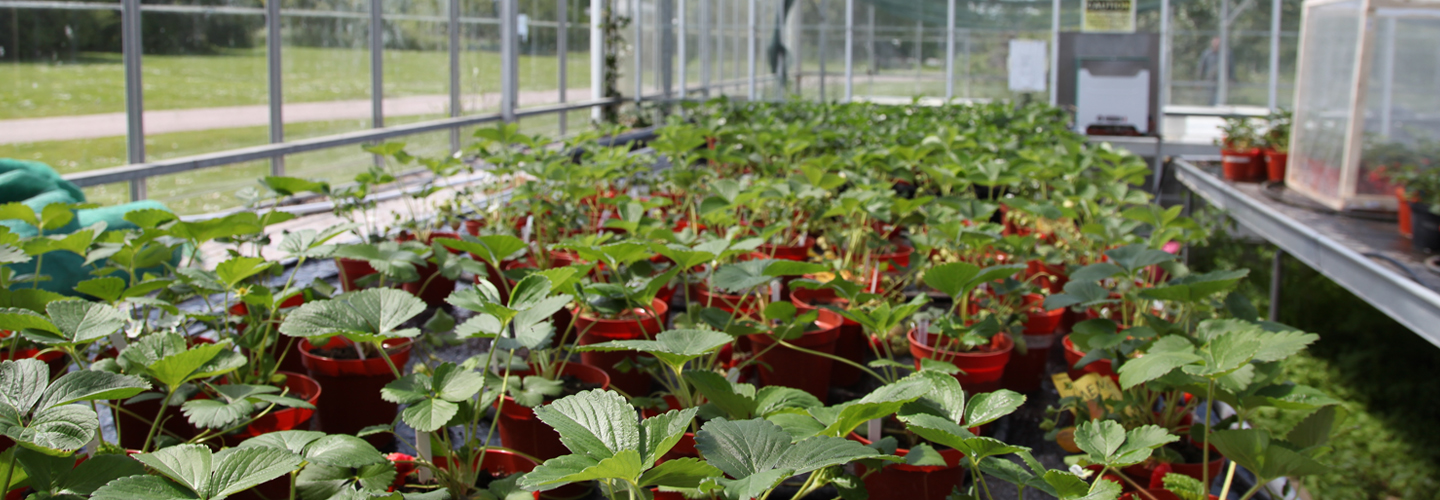Hertfordshire Knowledge Exchange Partnership contributes significant research to the life sciences industry
University of Hertfordshire PhD student James Fortune is in his second year of a Hertfordshire Knowledge Exchange Partnership (HKEP), contributing significant research to the life sciences industry on behalf of specialist research and consultancy firm, ADAS.
The four year HKEP programme was developed in partnership with the University and ADAS who specialise in the environmental, agricultural and rural sectors.
“My work with ADAS investigates interactions between the two fungal pathogens, Leptosphaeria maculans and Pyrenopeziza brassicae, at different stages of their life cycles. The project is intended to enable us to develop new strategies for better control of both pathogens to reduce crop losses and improve disease modelling,” says James.
The HKEP programme provides tailored support to enable businesses to carry out research and development work. James’ first year on the programme began with an initial year working in industry, where he was based at the ADAS offices in Cambridge. Here, he engaged in research consultation, managed projects and was able to immerse himself in the business.
James’ industry supervisor Faye Ritchie, a plant pathologist at ADAS, highlighted the initial industry year as the major incentive for the company to want to take on the HKEP. “We already had an existing relationship with the University but having a PhD placement student was not something we’d considered in the past.”
“When the University approached us to form the HKEP, we realised what a great opportunity it would be for the business in exposing students to our industry and the work we do at ADAS, as well as the fact that James’ project sits really well within our research interests, so we could see the value that he could bring to the work we already do.”
“Since the project began, we’ve been able to use some of the findings from James’ project in presentations. He made a valuable contribution to other research projects whilst on placement with us and he’s developed new research methods that we can use within the business.”
Faye has found the HKEP useful in allowing the company to profile their link with the University and their commitment to supporting the next generation of researchers. “We’re able to use this partnership to create a story to share within the industry and showcase the benefits of knowledge exchange initiatives.”
According to James, the first industry-focused year of the HKEP is what drew him to choose to come to the University of Hertfordshire to undertake his PhD: “I could see the appeal of gaining work experience alongside my study. It’s honed my understanding of the difference between academia and industry and how the two complement each other.”
“I’ve also been able to form and retain contacts and build up networks. This has been largely through attending research and postgraduate conferences, both local and international, and talking about the work I’m undertaking with ADAS. I’ve had the chance to share my knowledge and research with likeminded scientists, drawing parallels and working out how I can embed my learnings within these environments, back into my PhD work.”
Now that James has completed his industry placement year, his focus has moved solely towards his PhD study. “The great thing is I’m still in contact with ADAS on a regular basis even though I’m not based there; they are always available to provide me with support. I have four supervisors, three academics based at the University and Faye who is based at ADAS. This means that within my work, I’m always being made conscious of its industry relevance.”
James sees huge potential in the outcomes of this HKEP for contributing to both UK and international agriculture, especially in developing countries. “The findings will enable the reduction of economic deficit that results directly from crop losses due to these two pathogens and unnecessary fungicide applications.”
Find out more
The Hertfordshire Science Partnership, funded by Hertfordshire Local Enterprise Partnership and ERDF provides similar support for small and medium sized enterprises (SMEs) to boost research and development capability.
Contact be@herts.ac.uk to learn more.
